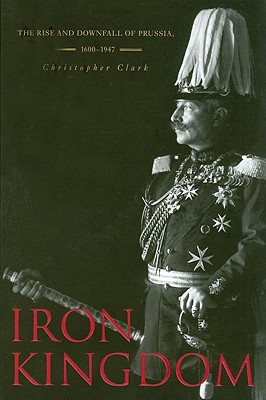
5 Long before the death of his father in 1840, the crown prince surrounded himself with like-minded Christian friends. But his Christianity was not merely a matter of images and formulations it shaped his policies and affected his choice of advisers. 4 At times of stress and high drama, he turned instinctively to biblical language and precedents. He was a ‘lay theologian on the throne’, for whom religion and politics were inseparable. 3įrederick William IV was the last Prussian – perhaps the last European – monarch to place religion at the centre of his understanding of kingship. His letters to intimates and siblings were long unbosomings copiously sprinkled with batches of up to seven exclamation marks. Frederick William was a romantic not only in his tastes, but also in his personal life. He had grown up on a diet of romantic historic novels – a favourite was the Prussian writer Friedrich de la Motte Fouqué, a descendant of the Huguenot colony in Brandenburg whose historical romances featured high-minded knights, damsels in distress, windswept crags, ancient castles and gloomy forests. The new king, by contrast, was a product of the Romantic era. His predecessors, Frederick William III, Frederick William II and Frederick the Great, had all been educated in the spirit and values of the enlightenment.

He was something of a puzzle, even to those who knew him well. The new king, Frederick William IV, was already forty-five years old when he ascended the throne. 2 The hopes and expectations of liberals and radicals across the kingdom were focused on his successor. Above all, Frederick William III’s ‘solemn and famous promise’ to grant a constitution remained, at his death, ‘an unredeemed pledge’. The political predicaments of the previous reign were still unresolved. The death of Frederick William III on 7 June 1840 left an oppressive residue of unfinished business.

1 In Prussia, these trends were amplified by a regime change.

This was the most turbulent phase of the post-Napoleonic ‘age of flux and hiatus’. An intensifying social crisis generated conflict and violence, confronting administrative and political establishments with problems they seemed unable to solve. Popular cultures acquired a harder critical edge.

In the 1840s, political dissent across the European continent became better organized, more confident and socially more diverse.


 0 kommentar(er)
0 kommentar(er)
